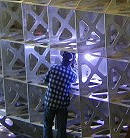 Last week the Bureau of Industry and Security (“BIS”) announced a settlement with Washington-based fabricator Edco, Inc., pursuant to which Edco agreed to pay a $52,000 fine, $26,000 of which was suspended for a year provided that Edco commits no further export violations. The transaction at issue was the export by Edco of an EAR99 saw to China in a transaction that had been brokered by Sunford Trading Limited, a Hong-Kong-based company that was at the time subject to a Temporary Denial Order. In what must be a new high (or low) in the creative charging department, BIS charged Edco with “evasion” under section 764.2(h) of the Export Administration Regulations.
Last week the Bureau of Industry and Security (“BIS”) announced a settlement with Washington-based fabricator Edco, Inc., pursuant to which Edco agreed to pay a $52,000 fine, $26,000 of which was suspended for a year provided that Edco commits no further export violations. The transaction at issue was the export by Edco of an EAR99 saw to China in a transaction that had been brokered by Sunford Trading Limited, a Hong-Kong-based company that was at the time subject to a Temporary Denial Order. In what must be a new high (or low) in the creative charging department, BIS charged Edco with “evasion” under section 764.2(h) of the Export Administration Regulations.
Leaving aside the whole issue of BIS’s questionable authority to issue general denial orders while the Export Administration Act is in lapse, this case illustrates the continuing efforts of BIS to stretch the terms of denial orders to accuse third parties of violating those orders even though nothing done by the third party violates the terms of the denial order itself. The first section of the denial order dealt with actions by Sunford and forbade Sunford from being involved in any export transaction. Sunford, by brokering the deal between Edco and its customer in China, clearly violated that part of the denial order.
The second part of the denial order indicates what things people other than Sunford may do in connection with Sunford. Each of these restrictions deals with the third party engaging in activities with items exported or to be exported and owned or controlled by the denied party, e.g., exporting the item on behalf of the denied party, assisting the denied party in acquiring the item, acquiring the item from the denied party, or servicing the item for the denied party. Edco did none of these things here because the saw was never owned or controlled by Sunford. All Sunford did was introduce the buyer and the seller and receive a commission for that service.
BIS obviously understood that Edco didn’t violate the denial order because it didn’t charge Edco under section 764.2(a) for engaging in conduct prohibited by any order. And without any evidence that Edco was aware of the TDO, BIS could not charge Edco with aiding and abetting in violation of section 764.2(b) or acting with knowledge in violation of section 764.2(e). That pretty much left only a charge of evasion in violation of section 764.2(h).
The problem is that even though the concept of evasion is quite broad it is necessarily limited to cases where an person or company avoids its own obligations through some kind of improper manipulation, trickery or deceit. Here, Edco was not under any obligation by the terms of the denial order not to have an export transaction brokered by a denied party. Thus, there was no obligation of Edco’s here for it to evade. Moreover, Edco could not evade Sunford’s obligation not to engage in export transactions.
Clearly BIS is dissatisfied with the language of denial orders as prescribed in Supplement 1 to part 764. But the way to fix that is to amend the EAR, not to dream up questionable theories of liability. All BIS would have to do is add a prohibition to part 2 to prohibit third parties from engaging in transactions with the denied party that constitute a violation of the denied parties obligations under the denial order. How hard would that be?
 Permalink
Permalink
Copyright © 2010 Clif Burns. All Rights Reserved.
(No republication, syndication or use permitted without my consent.)

 Posted by
Posted by  Category:
Category: 

